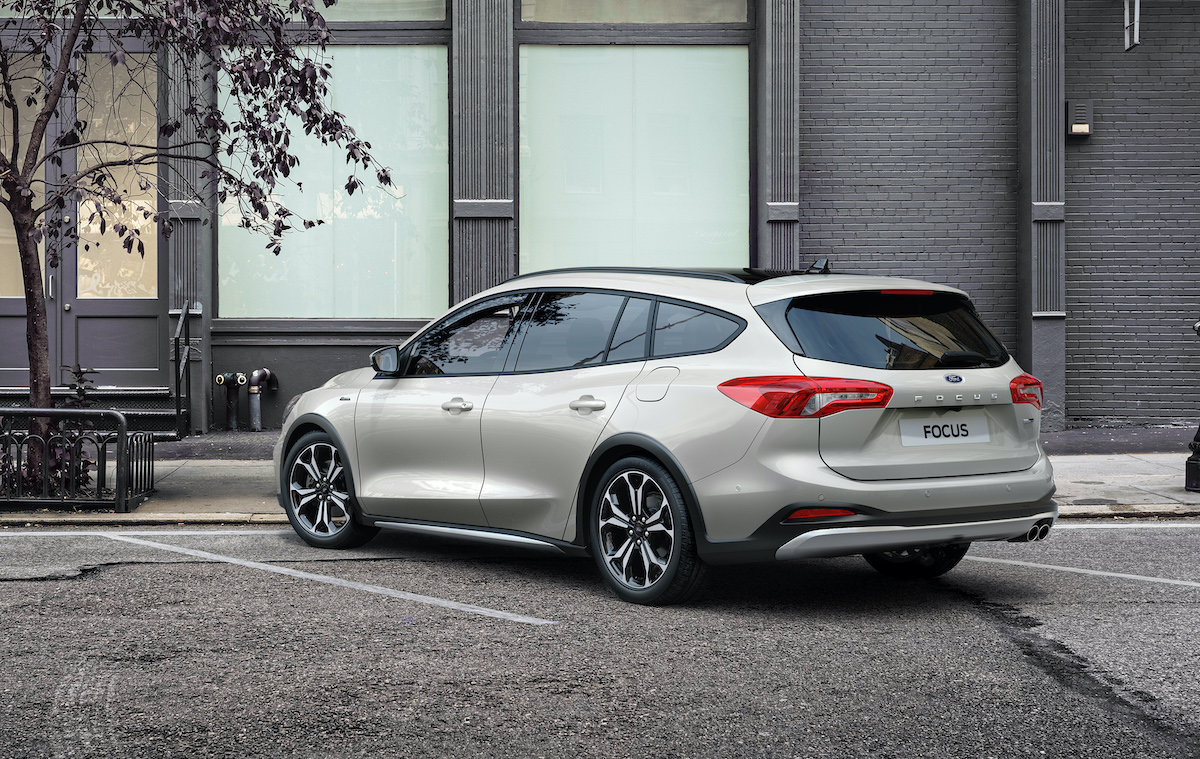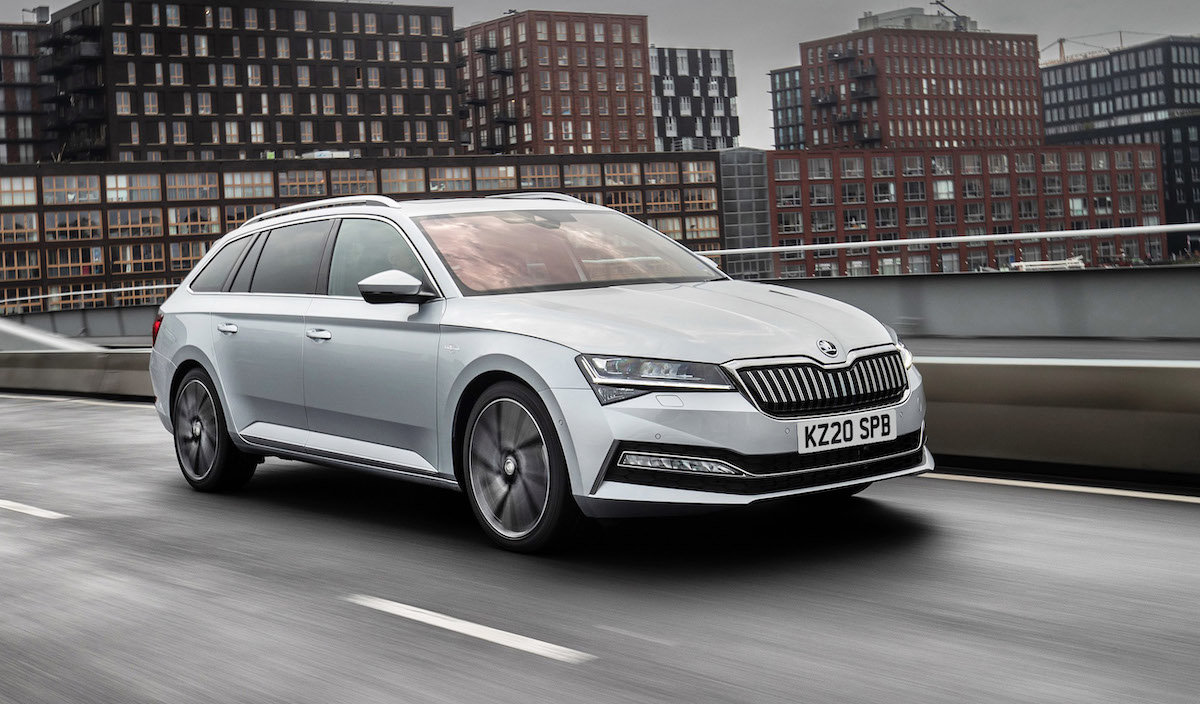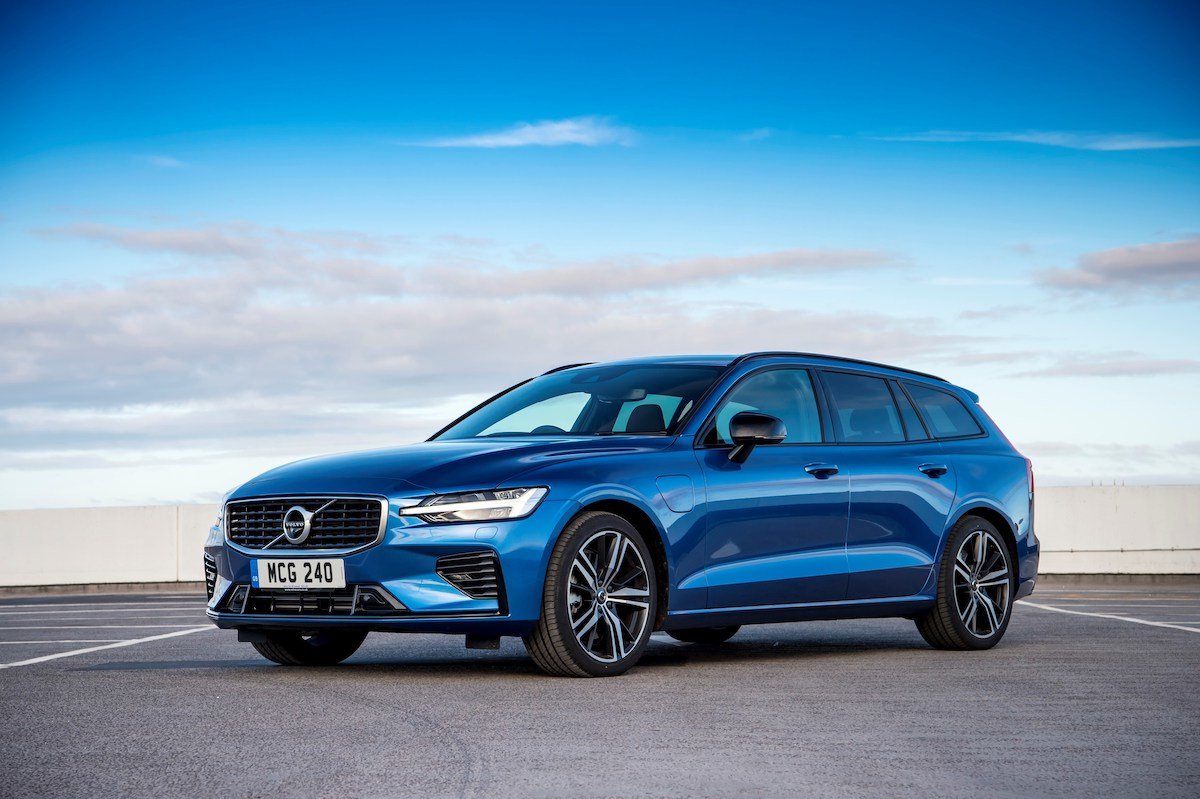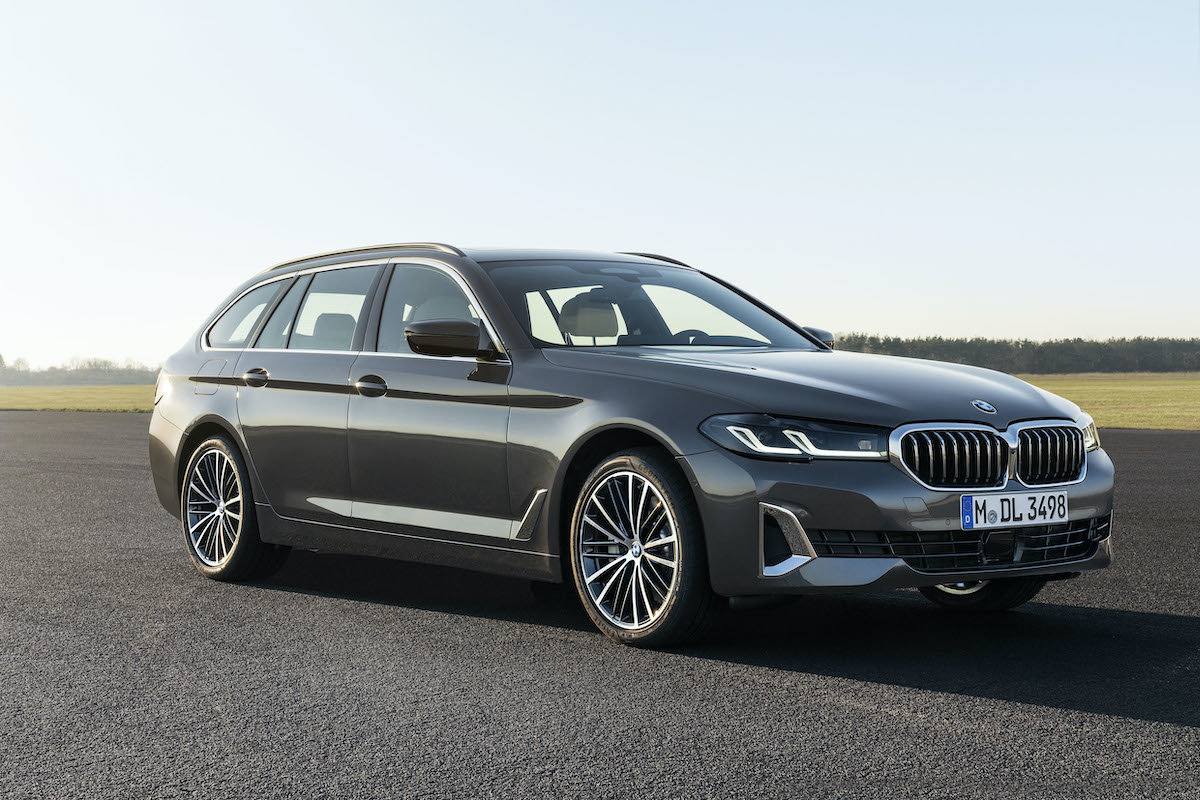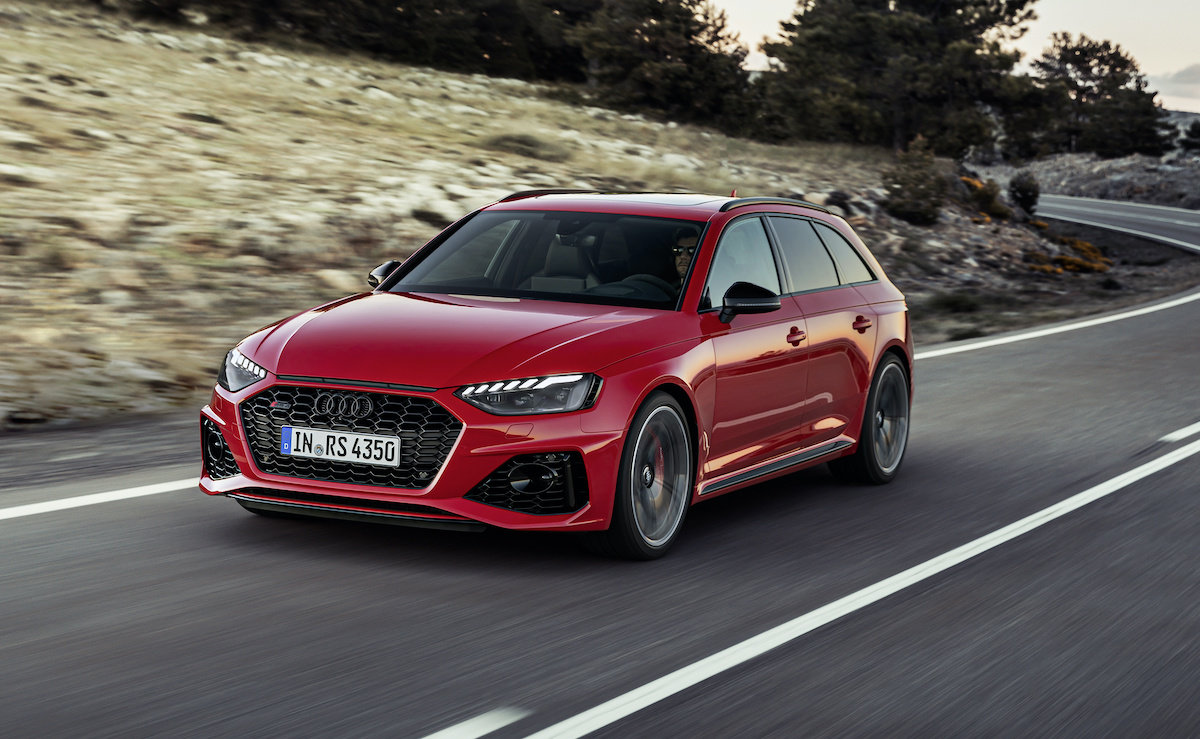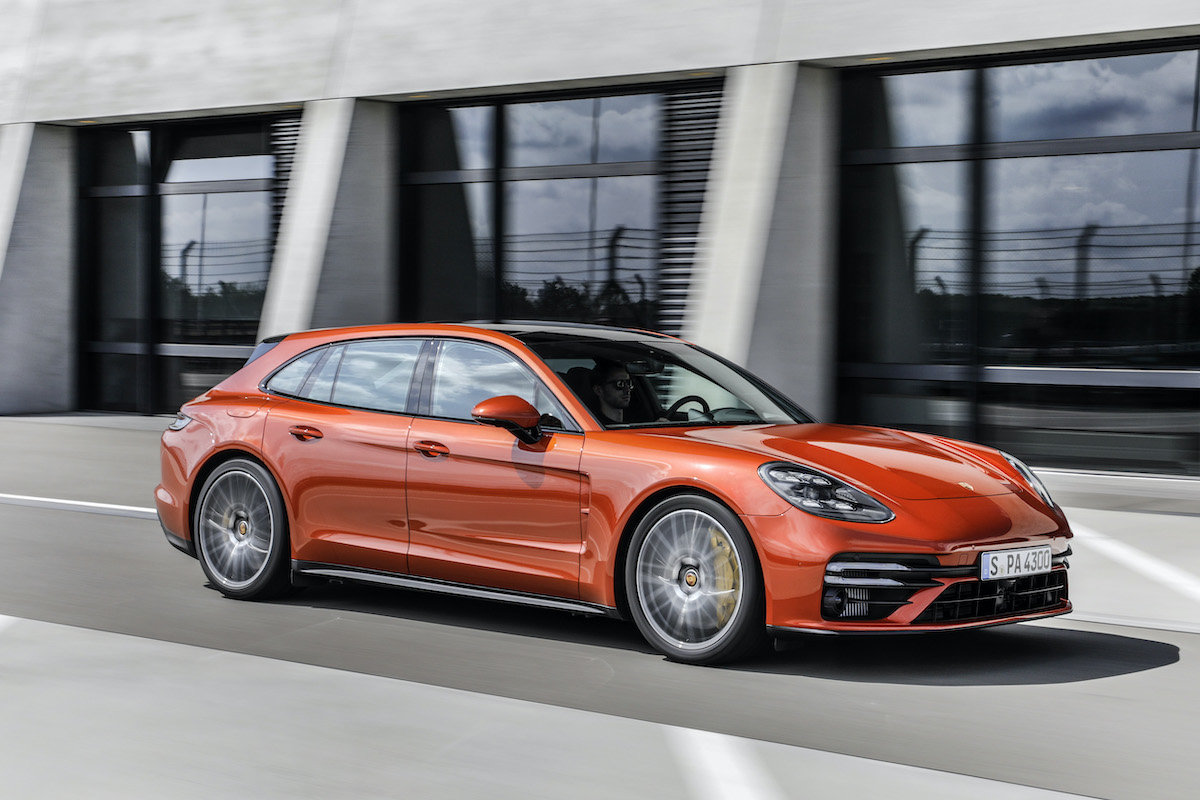It is a truth universally acknowledged that estates are, well, boring. They’re cars for carrying cargo, lugging loads. They’re just functional utilitarian boxes, aren’t they?
Not a bit of it. Estate cars can be cool. As proof of this, think about models that are available as both saloons and estates. Which one looks better? The estate, right? Every. Single. Time.
Apart from the styling advantages that estates have, there’s another equally compelling reason to buy. Because of the assumption that estates are boring, nobody pays much attention to them, meaning that they make great Q cars, cars that look ordinary but actually have amazing performance - we've included a couple of just such cars on this list.
Not all the estates we’ve chosen here have jealousy-inducing performance, but they all have something to offer, from the practicality and versatility of increased boot space to understated style. And, yes, there are a few that have the performance angle covered, too.
Best Estate Cars 2024
- Seat Leon Estate (2020-)
- MG 5 (2020-)
- Ford Focus Estate (2018-)
- Skoda Superb Estate (2015-)
- Volvo V60 (2018-2023)
- BMW 5 Series Touring (2017-2024)
- Audi RS4 Avant (2018-)
- Porsche Panamera Sport Turismo (2017-)
Seat Leon Estate (2020-)
The Seat Leon is one of the better family cars on the market, either as a hatchback or an estate. Sharing its platform and mechanical parts with the Volkswagen Golf, the Leon nudges the scales in its favour for many because not only is it cheaper to buy, but also because the exterior design is sharper and more stylish, with a sense of Iberian flair. The estate version (formerly known as the Leon ST, which stood for ‘Sports Tourer’, but now it’s just the Leon Estate), but it has all the style of the hatch, with sharp character lines on the bodywork.
The interior is a little more conservative but, depending on the trim level you choose, there are some very useful features and technology available. The engine range also has something for everyone, with petrol, diesel and plug-in hybrid versions on offer, but our choice is the flexible 1.5 TSI, as it's a good all-rounder. There is also a turbocharged 2.0-litre petrol engine in the Cupra variant that is tuned to around 300bhp, which is on a par with the Golf R: it’s quick and huge fun. But the 620-litre boot (which can expand to 1,541 litres by folding the seats down) is the main reason for getting the ST version, rather than the hatch. It’s big enough for most uses, especially if you have young children and need to carry buggies and all sorts of other related paraphernalia. Also worth a look is the BMW 3 Series Touring, whose stylish looks and upmarket badge make it a favourite with young families, or you you want a high-performance alternative, then there’s the M3 Touring.
Seat Leon Review
Search for a Seat Leon on CarGurus
MG 5 (2020-)
At the moment, the electric estate car is something of a rarity, with only a handful offered in the new car market. The MG 5 EV was one of the first, and with MG having quietly built up a small-but-dedicated following of value-seeking electric car drivers with its excellent MG ZS EV, the MG estate was alway likely to find some fans. Admittedly, the styling of the original car is rather dowdy, but a facelift in 2022 glammed things up a considerable amount, and various other improvement were made, too. The entry-level battery option was ditched so that only the long-range option was left, giving the zero-emissions powertrain the ability to cover between 235- and 250 miles (depending on which trim you go for) between charges, according to official figures. Rapid charging speeds were also improved, and more luxury kit was added, even though the improved touchscreen infotainment system still leaves a bit to be desired. Most importantly for an estate car, lifting the tailgate reveals a very useful the 578 litres of boot space, and that’s roughly the same capacity as you get in the Toyota Corolla Touring Sports hybrid estate. The MG also comes with a seven-year, 80,000-mile warranty, which can only really be bettered in the industry by Toyota and Kia.
MG 5 Review
Search for an MG 5 on CarGurus
Ford Focus Estate (2018-)
In some ways, the Ford Focus Estate is like the Swiss Army Knife of cars, in that it can pretty much do everything well enough to make you think that if you only ever had one car, this would be it. For example, take the way it rides and handles on the road. Mainstream cars – especially ones as popular with buyers as the Focus – are just not supposed to be this good to drive. They’re supposed to be bland and characterless: instead, the Focus makes driving genuinely enjoyable, and it's comfortable, too., both in town and on long-distance motorway schleps.
The big boot (608 litres) is equally impressive and bigger than many of its class rivals, so that also makes the Focus Estate a very practical and usable family load-lugger. The design of the exterior and interior are perhaps less of a standout feature than with cars such as the Leon but, on the other hand, it’s a perfectly good, functional design and its conservatism will mean that it should appeal to many buyers. The driving position is spot-on, too. And if you factor in the numerous safety and technology features, plus a wide range of engine and trim choices, it’s hard to argue against its all-round abilities. Not a fan of the Focus? Well, the Volkswagen Golf estate is a highly regarded alternative, albeit one that costs a little more to buy.
Ford Focus Review
Search for a Ford Focus on CarGurus
Skoda Superb Estate (2015-)
Skoda’s engineers have the uncanny knack of being able to somehow squeeze every inch of space out of their cars. Whatever the size and class of car, the Skoda model will always offer more headroom and legroom and a bigger boot than the rest. And that's never handier than when you’re buying an estate. We could have included the Fabia or Skoda Octavia Estate in this list (the latter of which is offered in sporty vRS form if that’s your thing), but we plumped for the Skoda Superb estate because, well, it has one of the biggest boots of any car: 660 litres are available when all the seats are in place, which is enough for quite a few cases or cabin bags, while the 1,950-litre load area when the rear seats are folded down is bettered only by a Black Hole.
There are plenty of solid diesel engines in the range, as well as petrol units and, from 2020, a plug-in hybrid called the iV with impressive fuel economy for low running costs. Buyers can also choose a car with a four-wheel-drive system, while the various trim levels all have well-equipped standard specifications. All in all, it's one of the best used estate cars out there. Also worth a look if size truly is everything is the Volkswagen Passat Estate, which shares a platform with the Superb, and so is similarly vast inside.
Skoda Superb Review
Search for a Skoda Superb on CarGurus
Volvo V60 (2018-2023)
For those of us of a certain age, the name Volvo almost inevitably conjures up mental images of big, boxy estate cars, the ones that the Swedish brand built in the '80s and '90s. But things have changed, and in 2023, the company took the decision to stop building estate and saloon cars entirely in order to focus on producing SUVs and crossovers, which have become more popular with buyers. Bit of a shame for the estate car fans among us, but fear not, as there are still lots of Volvo estates sloshing around on the used car market.
And the V60 is definitely worth seeking out. Since the launch of the second-generation XC90 in 2015, all Volvo models have a minimalist, Scandinavian design, which looks just as good on the V60 estate as it does on its bigger brother, the Volvo V90.
The same goes for the interior, which is beautifully appointed and has some of the most comfortable seats you’ll find in any car. The 529-litre boot is also pretty sizeable, so not only will you have a cool-looking container, but it’s also practical. Plus, of course, there’s the sense of safety that the V60 will afford you. Volvo has been an innovator in this area for decades, so it should come as no surprise that the V60 has a five-star Euro NCAP rating, thanks to some cutting-edge crash avoidance technology. Not feeling a Volvo badge? Then try the Audi A6 Avant instead.
Volvo V60 Review
Search for a Volvo V60 on CarGurus
BMW 5 Series Touring (2017-2024)
BMW has recently released the all-new eighth-generation version of the 5 Series saloon, but it hadn’t yet got around to bringing out the Touring estate car version. No matter, because the previous seventh-generation 5 Series Touring is still easily good enough to make this list, thanks to its sophistication, cutting-edge technology and a very engaging and involving driving experience.
There’s also a real breadth within the range. You can go for a conventional and pretty frugal 520d; choose the hybrid 530e for its environmental credentials; or push the performance boat out and pick up a 540i. Plus, depending on how and where your 5 will be driven, you can opt for either the conventional rear-wheel drive set-up or four-wheel drive, labelled xDrive. In terms of practicality, the 5 Series Touring has a 570-litre boot that can expand up to 1,700 litres if you fold down the rear seats, ideal for bikes, golf clubs or whatever else you need to carry.
Although once you start your journey, you might well forget that you’re supposed to be carrying stuff in the boot, and just enjoy the drive. Not quite sharp enough for you? Well, the Jaguar XF Sportbrake is probably the best handling estate car of all, though it falls behind the 5 Series in several other key areas.
BMW 5 Series Review
Search for a BMW 5 Series on CarGurus
Audi RS4 Avant (2018-)
Audi is very much an aspirational car brand at the moment, with drivers liking the design, the image and the premium nature of the marque. But Audi has some strong motorsport roots, too, so it has long had a sideline in sporty cars, badged RS (for RennSport, German for racing sport) that have topped the ranges of many of the models that the German company produces.
The RS4 Avant is therefore a fast version of the Audi A4 Avant (which is what the company calls its estate cars) and dates back to 2000, when the first version was built. The current generation has been on the road since 2018 and is powered by a 2.9-litre V6 engine that produces 445bhp and can complete the 0-62mph test in just 4.1 seconds. That is proper sports car pace. But let’s not forget that it is also an estate car, with a 495-litre boot (1,495 litres with the rear seats down) that will swallow up a fair few cases for a road trip. And with the speed of the RS4, that would be one heck of a road trip.
Search for an Audi RS4 Avant on CarGurus
Porsche Panamera Sport Turismo (2017-)
Whenever you hear the name Porsche, you’re guaranteed a beautiful design, brilliant engineering and pretty much the pinnacle of car ownership. But Porsche builds sports cars, not estates, we hear you cry. Not so, we say. Because since 2017, the German brand has produced a ‘shooting brake’ (an estate that is more focused on being sleek, rather than capacious) version of its Panamera executive saloon, known as the Sport Turismo. And yes, it is an estate, but it’s also a sports car.
In fact, the 670bhp Panamera Turbo S E-Hybrid Sport Turismo is the most powerful estate car currently in production, with a 0-62mph time of 3.4 seconds. Not only does the Sport Turismo have speed to spare, but it has all the trappings of luxury in the high-quality cabin, offers a superb driving experience and can transport four people in comfort (well, relative comfort, depending on how the driver sets up the adaptive air suspension). Oh, and it also has a 515-litre boot, so it’s practical, too.
Porsche Panamera Review
Search for a Porsche Panamera on CarGurus



